Steph W. from SEOPressor


...help you check your website and tell you exactly how to rank higher?


90
score %
SEO Score

Found us from search engine?
We rank high, you can too.
SEOPressor helps you to optimize your on-page SEO for higher & improved search ranking.
By vivian on July 4, 2017
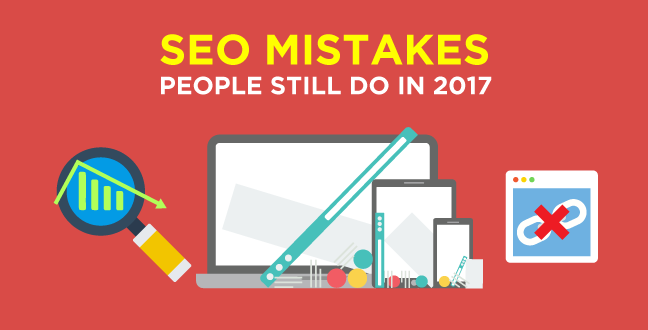
SEO Mistakes. I’ve made a few. We all have, really. For anyone who works on or around the Internet, the list of common SEO mistakes is massive. Sadly though, even as these mistakes are widely known, they are still made more often than most pros in the business would care to admit. But what are some of the SEO mistakes to avoid? How can good SEO practices make your future better than your present?
In order for you to know just what SEO mistakes to avoid, you need to know what good SEO practices look like.
Positive SEO techniques, also known as “white hat SEO,” are things that will gradually, organically improve your search engine rankings. Search engines are the directions in the map and white hat SEO are the turbo thrusters which rocket your website to the top of the field.
What all this means is that when you avoid common SEO mistakes, you are far more likely to have people come upon your website and as a result your social media accounts. What follows are 9 of the worst SEO mistakes that people, companies, and maybe even you have been making and what you can do to avoid them.

The UX or User Experience is the knife and butter for the bread that is SEO. The User Experience is pretty self-explanatory, but your user has to be able to access your site quickly and pleasantly. How many times have you been seeking a website and the loading delays and image upload have forced you to simply give up and look elsewhere?
If this is your site, you have been ignoring the User Experience. Users often don’t forget when they have a bad experience too.
Can you remember a time when you had a bad meal at a restaurant or found someone else’s unmentionables when you got into your hotel bed? Of course, these businesses are going to remain in your mind and not for the reasons they want. So it is for your website. Your users have to have a positive experience or they will go elsewhere.
Google even has the credo “Focus on the user and all else will follow“. Google knows a thing or two about search. With the increased focus on the User Experience not showing any signs of relenting, the UX on your website should be a priority.
Whether your brand is B2B or B2C, you can bet that most of them are using some type of mobile device to access your website. When you ignore this crucial audience you are doing so at your own peril. This is why you should understand the importance of mobile-friendly websites.
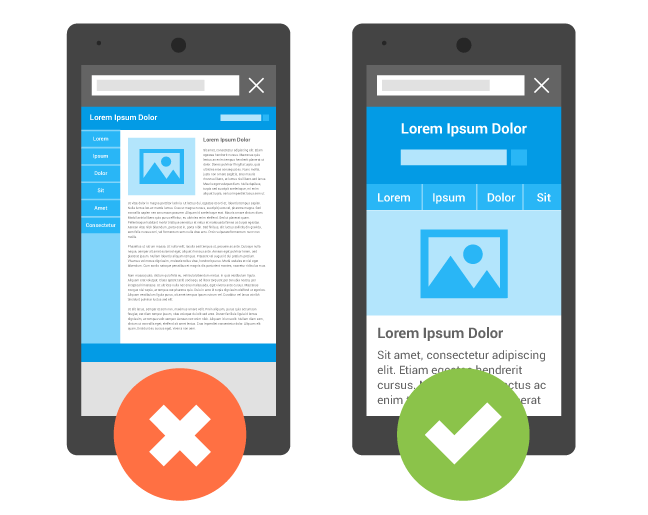
One of the biggest SEO mistakes to avoid is not having a responsive site.
When was the last time you thought of a question or wondered about a service and thought, “You know what, I don’t need this information now. I’ll catalog it in the back of my mind, do all the other things I need to do, and then return home and sit down at my desktop PC to inquire about this information”?
If you’re like 100% of people with a smartphone or tablet, the chances are you’ve never done this. The reason is that we want our information now. Google recently announced that their search algorithms are doing Mobile First indexing.
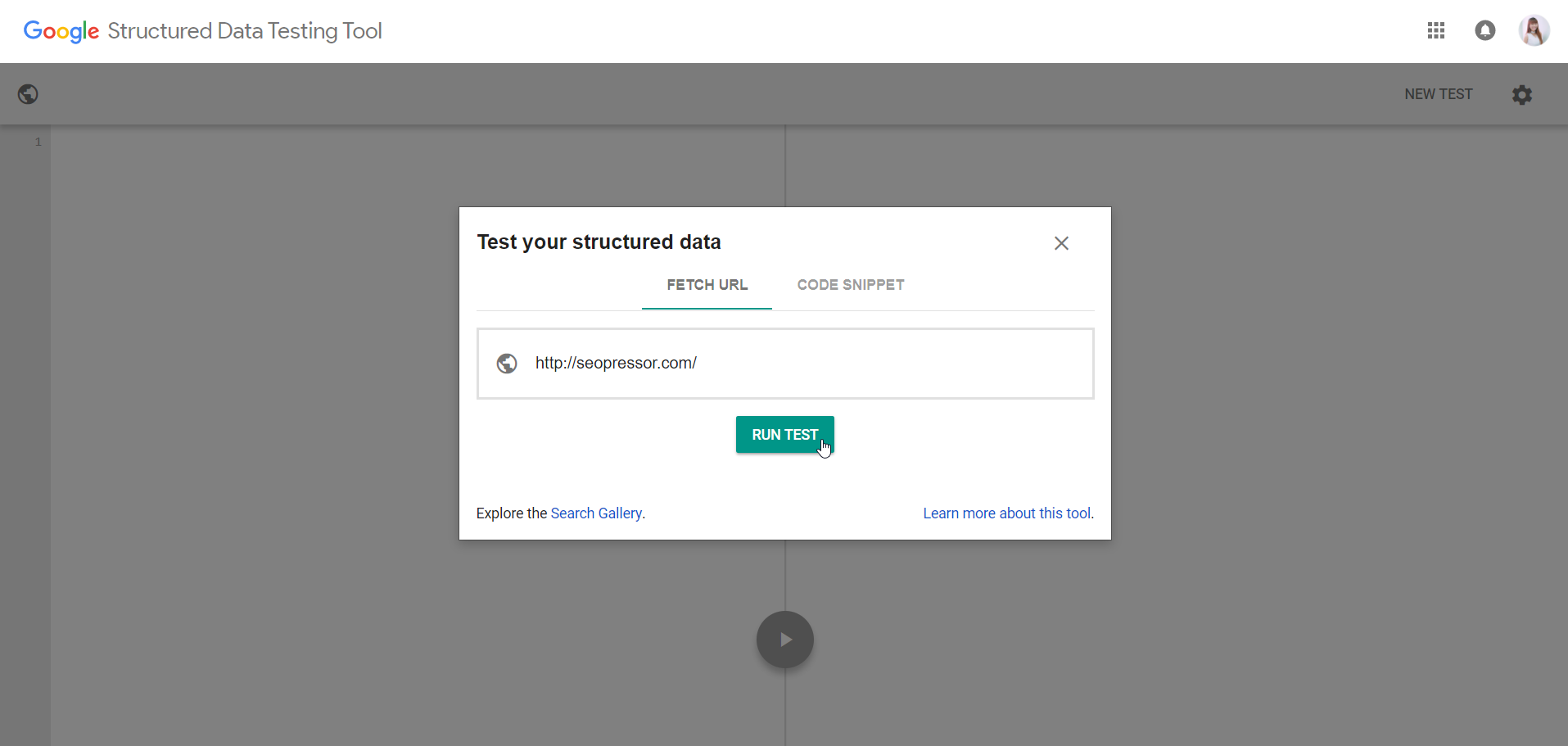
You can use the Structured Data Testing Tool to tell how your site is doing in the mobile realm and how your site ranks in the mobile Google testing standards.
Having strong, original, and organic content on your website is still the best way of driving maximum traffic to you. The best of the best brands still put out fresh, original, relevant content. But why do you suppose that is? Because even the strongest in their field need to continue driving growth.
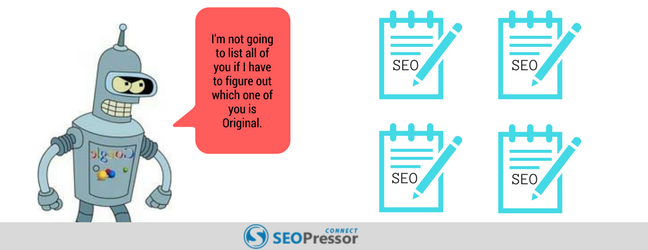
Without growth, there’s stagnation. When there is stagnation, things need to be cut. When strong brands get cut, the strength of the brand suffers. How can you combat this need for pruning? To wit, how can your brand overtake those stronger than yours to assert dominance?
Strong content, of course. You should have a long-form content strategy to elevate and maintain your SEO rankings. Some of this content should be at least 1,500 words to display a depth of knowledge and experience.
It’s also vital to ensure there is proper formatting, optimized images, and even video embeds. Some think that they can just link to others content and throw up some hashtags, but that’s not going to help your search engine rankings.
Ancient wisdom reminds us: the more backlinks you have pointing to your site, the more popular your site will be.
Still one of the SEO mistakes that sites continue to make is not staying on top of your backlink maintenance. Consider this like sweeping your floor or cleaning out your closet.
If you have links from a bunch of spammy or ‘dead’ websites, will your online presence be further alienated? We have a good resource to help you understand how backlinks validate your online identity.
What is your content strategy? What’s that? You don’t know? If you can’t answer that question right off the bat then the answer is you have no content strategy and that is also the biggest SEO mistakes to avoid. The fact is that SEO and content are inseparable.
You need to have an active and responsive blog, indexed with targeted keywords and maximum visibility or your website will suffer. It’s like that question about a tree falling in the forest with no one around. If your website is in existence but has no plan of attack, how are you supposed to be successful?
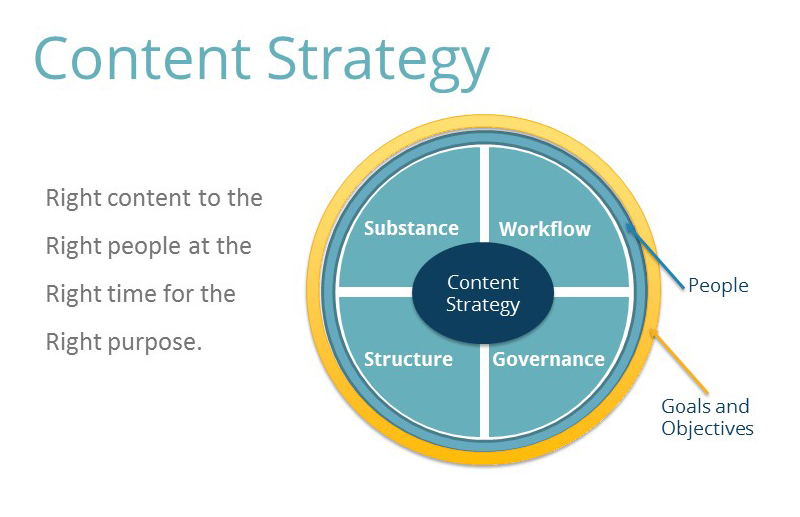
You need to have an actionable plan in place and go about setting that plan in motion.
Even your social media strategy has got to have an active, measurable, long-term plan. Your plans can even be transferrable between mediums. Facebook is where most social media happens now, but just because it is today doesn’t mean it will be tomorrow. Your content strategy can have overlays to be applicable in whatever space happens to be trending on social media at that time.
A Disgruntled Prince of Denmark uttered the oft-quoted “words, words, words” and more than 500 years. Hence, words are still crucial to communication.
One of the biggest SEO mistakes is thinking that keywords don’t matter. (Read how you can get started with SEO here.) Search engines still use keywords to appreciate what your website is about. How are they going to know what your website is all about if there are no keywords to direct it?

People use keywords in their search queries to find what they are looking for.
Using the right keywords is the best way to maintain consistency among your brand while organically driving traffic to your door. Conversely using the wrong keywords will only muddy the waters further.
If you don’t know which keywords to use for your website, think about what your site is about and what the attached business or directory offers those seeking you out. If you begin to think like the hunter rather than the prey, you will be in a far better position to be found where they are looking.
Maybe the most common SEO mistakes people continue to make is the belief that the rules don’t apply to them. They don’t need to use the tools available to everyone. Their website stands on its own, marches to its own drum, cedis to no one.
While all those things may be true not utilizing analytics and Google Webmaster tools will put you at a decided disadvantage. If you’re an aspiring baseball player, that’s awesome. But if you have never picked up a glove, bat, or ball before in your life and if you don’t know the rules of the game, how are you supposed to succeed? It’s the same in the world of search.
Another biggest SEO mistakes to avoid is not using the tools which are widely available. How does Google work? What is SEO even all about? You should be able to answer these most basic of questions.

Google Analytics is a great tool to keep your eye on engagement rates and keep them going up.
Google Webmaster and other Analytics tools will enable you to keep monitoring your progress and help your website find its audience.
When you have a URL for a page on your site or a posting to your site, that’s great. It’s a good idea to have as many URLs as are necessary in order to make your site relevant. Of course, the problem with URLs is that they are often just long bits of letters and numbers and symbols. But it’s really important for you to optimize these URLs.
In terms of SEO mistakes, this may seem slight, but when you leave a URL too long and confusing, it’s not going to help your organic search engine ranking. If you take the URL and make it into short and concise with optimized keywords, it will make a lot more sense to the search engines.
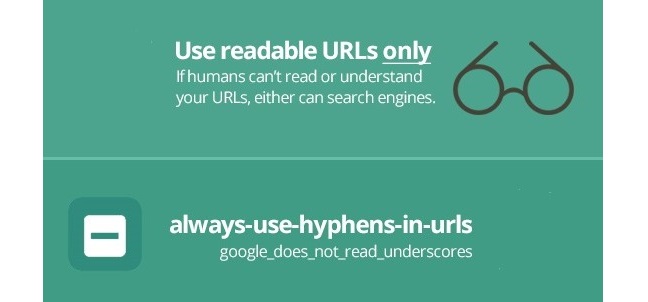
If you optimize all of your URLs for each post and each page, then search engines will have a far easier time crawling your site and discovering what you have to offer. If all of your URLs remain jumbled and messy than the search results will be scattershot.
The 9th and final of the SEO mistakes to avoid is neglect. Neglecting broken links on your website, to be precise. You would be surprised to learn all of the different websites that have broken links in them.
Of course, finding these broken links is another issue entirely. The best way to find out which of these links are broken is to conduct a technical audit. This audit will identify all the broken links which redirect users to a different page.

SEOPressor Site Audit is a great tool to find out where your website stands.
Once you know where your weaknesses lie then you should update these links to go to a healthy destination which is the target page that you intended.
As you can see, there are scores of SEO mistakes that people are making all of the time. If you count yourself among those making these errors, it’s not too late to make a change.
You can also check your SEO score at this free tool, Website SEO Checker to see how’s your website is performing.
A comprehensive audit of your site for all 9 of these common SEO mistakes may sound cumbersome but in the end, it will benefit your bottom line immensely. What are some of the other SEO mistakes which you have made in the past? Share your stories with us here!
[This blog post was first written and published by Joanne on July 3, 2017. It is most recently updated by Vivian on Dec 30, 2020]
Related Posts:
Updated: 14 July 2025


Save thousands of dollars (it’s 100x cheaper)

Zero risk of Google penalty (it’s Google-approved)

Boost your rankings (proven by case studies)
Rank High With This Link Strategy
Precise, Simplified, Fast Internal Linking.
